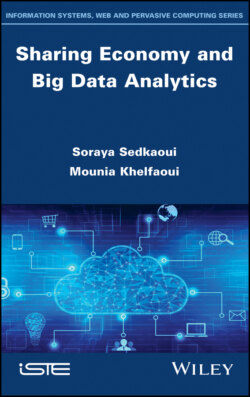Читать книгу Sharing Economy and Big Data Analytics - Soraya Sedkaoui - Страница 35
1.4. Conclusion
ОглавлениеThe sharing economy, a trend that can change everything in its path, seemingly unnoticed. Based on horizontal management, it encourages sharing and stimulates community relations in business transactions.
It is increasingly not only attracting an informed population concerned about the impact of economic activity on the environment and social well-being, but also a young population that is “connected” to new IT trends. The propensity of this generation to share is not a fluke nor a coincidence.
In short, today’s companies, operating in a sharing economy, are making their way to glory and sustainability.
TO REMEMBER.– The sharing economy is really an economic model and disrupts the capitalist model. The latter has created a crisis that has gone global at the same pace as the globalization of the economy. This crisis is multidimensional: economic, financial, social and ecological. What the sharing economy brings to sustainable development are global and integrated solutions.
1 1 Available at: http://tpe-societe-de-consommation.e-monsite.com/pages/tpe/iii-limite-et-critiques-de-la-societe-de-consommation-1.html.
2 2 This music store later became the pioneer of P2P technology and specialized in sharing multimedia files.
3 3 Michel Bauwens is a Belgian computer scientist, P2P theorist, author and lecturer on innovative technological and cultural topics (source: Wikipedia).
4 4 Source: https://www.justaskgemalto.com/fr/une-adresse-ip-cest-quoi/.
5 5 Marcel Mauss, who was born in 1872 and died in 1950 in Paris, is considered to be the father of French anthropology. His work has focused, among other things, on the meaning of giving in tribal societies. For Mauss, giving is essential in human society and has three phases: the obligation to give, the obligation to receive and the obligation to give back. His famous work is entitled The Gift: the Form and Reason for Exchange in Archaic Societies.
6 6 “Karl Polanyi (1886–1964), a writer and teacher of Hungarian origin, lived in Central Europe and Great Britain before emigrating to the United States during the Second World War. He is the author of a brilliant and powerful critique of the liberal tendency to place the market at the center of human nature and society, a phenomenon that we could call ‘commercial fundamentalism’” (Hart 2008).
7 7 The book is entitled How to win friends & influence people. He initiated three lessons to improve personality: think beyond yourself, be engaged and interested, empower and encourage.
